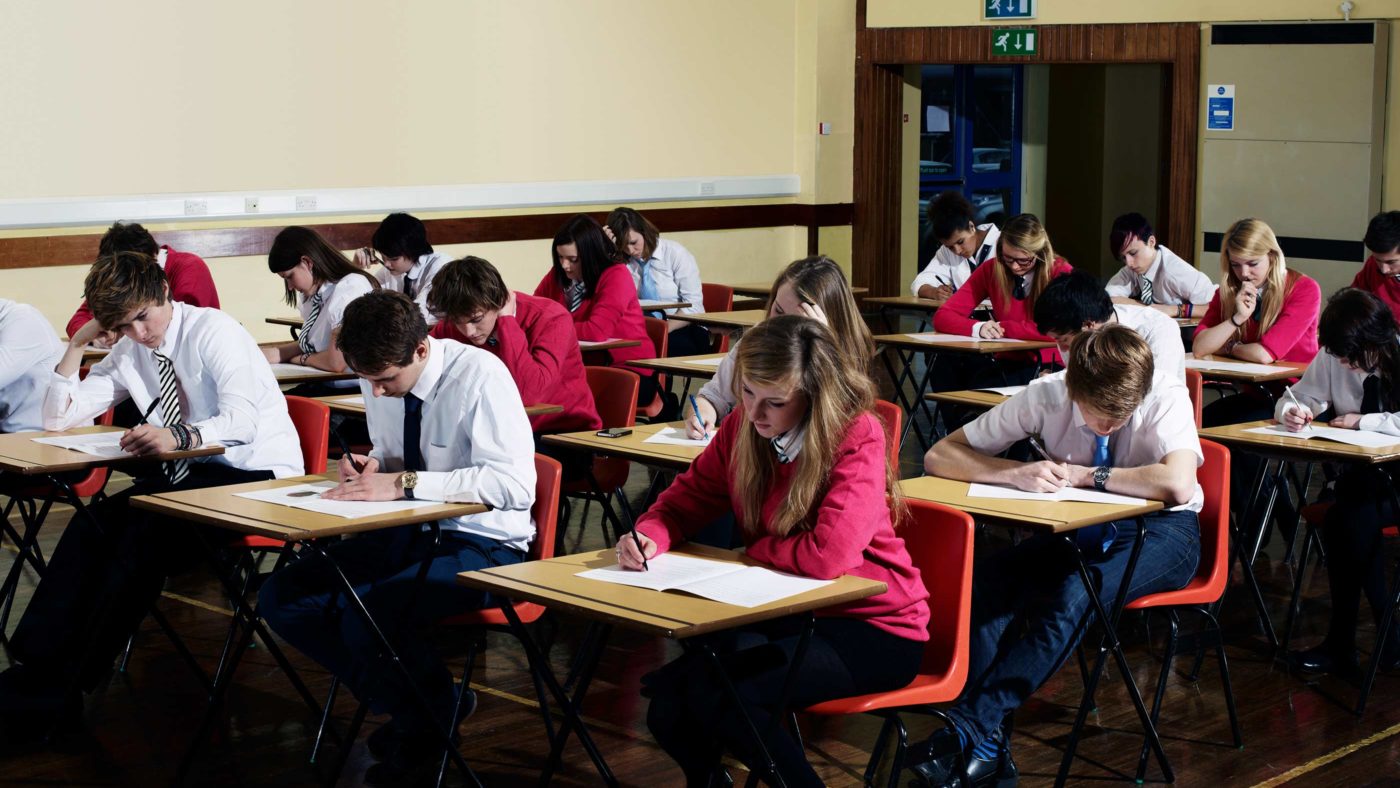What is it about examinations that makes so many intelligent people say so many stupid things?
The Times Education Commission held a conference yesterday to discuss what we should teach in our schools in the coming years, including how children will be assessed. Inevitably, it was attended by many self-styled ‘disruptors’, ‘futureologists’ and (worse) business leaders and academics, as well as a fair amount of former teachers who are so passionate about the profession that they left to become consultants, or union leaders as soon as they could.
All these people seemed to spend a whole day violently agreeing with each other that Something Must Be Done about the archaic/prehistoric/cruel/elitist/dumbed down/privileged curriculum (delete where your own preferences lie) that schools continue to inflict on our benighted children. I would guess that probably all of those attending the event benefited from a conventional education of GCSE or O levels, followed by A levels, a good university, and then work. They’re probably all good at passing exams. But none of them could see the irony of wishing to deny our children similar opportunities to those they had.
These people hate examinations. If you spend any time on education Twitter, which is dominated by liberal left ‘educationalists’, you would think that taking a two hour English Literature paper on To Kill a Mockingbird and An Inspector Calls is akin to waterboarding. What makes the debates around assessments so depressing – and potentially damaging – is how ill-informed they are. Many really do believe that us teachers spend all our time turning innocent children into exam-addicted automatons incapable of creative thinking. The sheer number of misperceptions that are traded by ‘experts’ is often validated through conferences like those held by The Times. They should not go unchallenged though.
Take Sarah-Jayne Blakemore, professor of psychology at Cambridge University, who spoke at yesterday’s conference. For her, GCSEs were designed around an outdated idea that teenagers have stopped developing by the time they take these exams. She said at the conference that ‘we now know from research…that’s absolutely not the case’.
In over 20 years of teaching, including being a GCSE examiner, I have never heard anyone claim that this is the premise on which examinations are founded. Rather, they are tests that measure progress and attainment, and which help students and schools decide on which subjects they go on to study. There is no perceived ‘fixed’ point of development, and the fact that we have A levels, and then degrees, and then postgraduate qualifications (all with assessments) seems to suggest that, taken together, our education system is a series of checks on a continuum of learning. Examinations play a key part in this.
Euan Blair (son of Tony) goes further still. For Blair, GCSEs should be abolished. He told The Times conference that ‘we’ve had for a long time this obsession with the academic as a marker of potential and talent’. He then went on to compare athletes making their best ‘breakthroughs’ outside the classroom.
Such rhetorical ploys are nothing new to those who seek to discredit GCSEs: nobody is really ‘obsessed’ with examinations (although if we were to be obsessed with anything, the ‘academic’ wouldn’t be a bad place to start), and comparing how we teach, and learn, to examples from outside the classroom are invariably tendentious and reductive. The fact that Blair owns Multiverse, which promotes apprenticeships, is perhaps more than tangentially linked to his hatred of GCSEs. The ability to adopt indefensible positions with an evangelical sense of certainty shows he really is his father’s son.
Such misconceptions about schools, how we teach, what students learn and how they are tested are endemic to the debate about the future, and what changes are necessary.
But none of this matters to those who seek to change our schools to suit their own peculiar vision of the future. Even those in positions of real authority – such as Dame Sharon White, chair of John Lewis – really do think that school inculcates ‘rote learning’, and that we need to show our children how to learn how to use teamwork, project management, and other things she does on management away-days. She favours continuous assessment, but we know – because we have had two years of collecting evidence through the pandemic – that continuous assessments, with teachers deciding on the grades, exacerbates every inequality that exists in society and results in unrestricted grade inflation. Examinations – set and marked anonymously – remain the least unfair method of assessing achievement.
For White ‘it’s very rare that there are any work tasks where you have two and a quarter hours to get from A to B. The way in which assessments are done [should be] mirroring the world of work’. Laudable stuff. But how, exactly, should teachers teach teenagers to be train drivers (who really do need to spend two hours learning to get from A to B), nurses, accountants, hairdressers, baristas and barristers, and all in one class? And how would they be assessed?
It is not fashionable to say it, but exams work. Until the visionaries who attend events like the Times Education Commission Summit can come up with something demonstrably better than what they want to replace, they should let students prove that they are quite capable of taking exams in a school hall, with pen and paper. Like Blakemore, Blair and White before them, they can do just that and still be fully prepared for the future.
Click here to subscribe to our daily briefing – the best pieces from CapX and across the web.
CapX depends on the generosity of its readers. If you value what we do, please consider making a donation.


